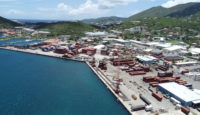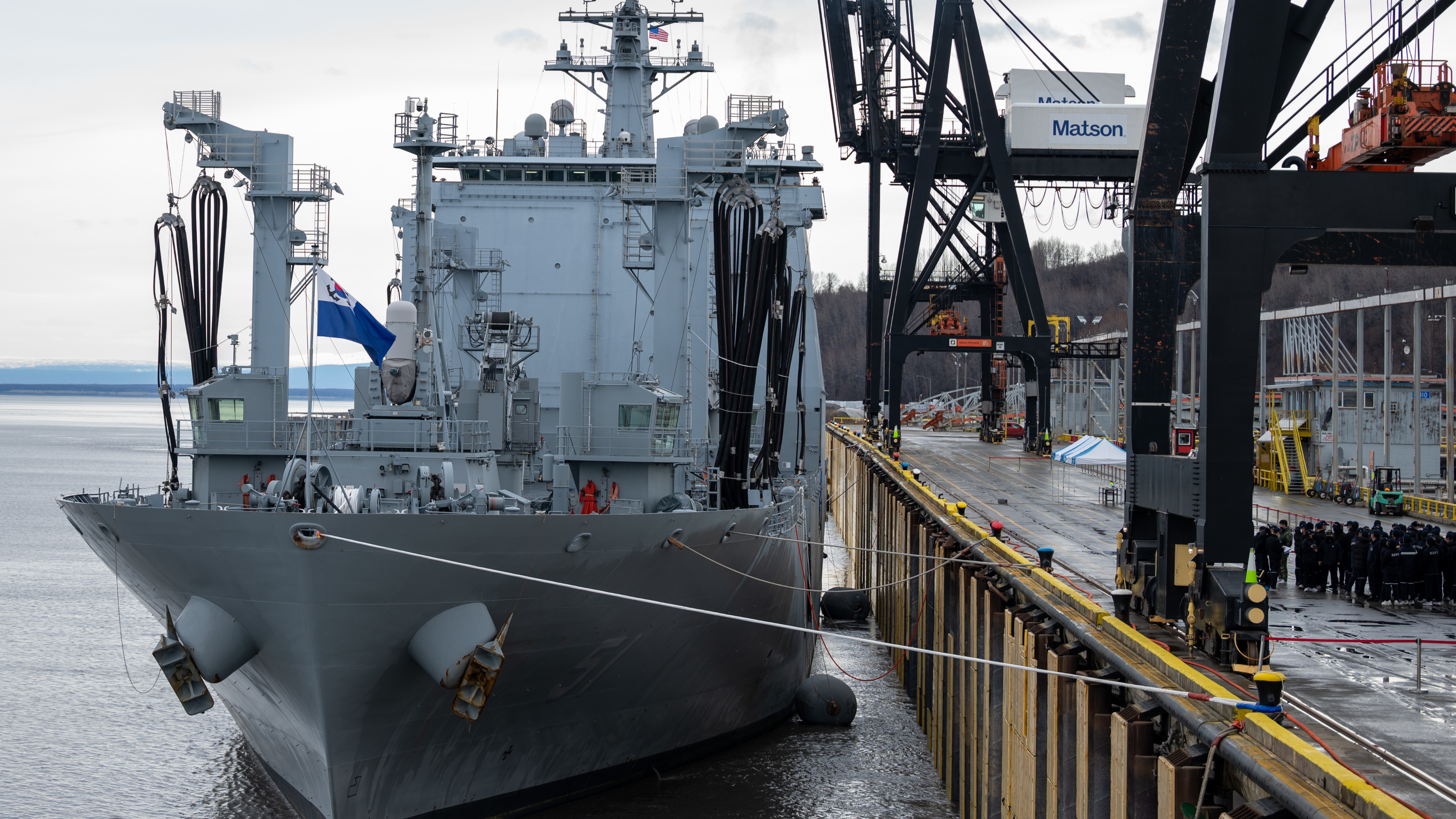In a move to bolster the supply chain, the U.S. Dept. of Transportation has awarded $653 million in grants to upgrade and expand infrastructure at coastal and inland ports. But DOT Secretary Pete Buttigieg warned that the port grant program's funding is threatened by budget cuts proposed by House Republicans.
The new batch of 41 Port Infrastructure Development Program grants, which U.S. DOT’s Maritime Administration announced on Nov. 3, went to projects in 25 states and the U.S. Virgin Islands. Alaska received the largest number of awards among the states, with six.
The federal funds cover a portion of a project's total cost, with ports and other grant recipients also contributing a share.
Top 5 Individual Grants
The largest individual grant was $54.2 million, to the Port of Tacoma, Wash., for a terminal expansion with a total cost of $125.9 million.
The second-largest grant, of $52.6 million, went to the City of Long Beach, Calif., for rail, pier and roadway improvements. The total project cost is $279.4 million.
Ranking third was a $50-million grant to the Diamond State Port Corp. to build a new container yard at the Port of Wilmington, Del.
Baltimore County., Md., received $47.4 million for improvements to support components for offshore wind energy projects; the City of Norfolk, Va., was awarded $39.3 million to convert an existing terminal and berth to an offshore wind logistics facility.
Grants in Great Demand
The port infrastructure program, like other competitively awarded DOT discretionary grants, continue to be in great demand.
For the latest round, Buttigieg said the department received 153 applications, seeking a total of $2.8 billion. He said the volume of applications “really demonstrates the popularity of this program and the number of places that really need the investment.”
Worries About House GOP Cuts
But Buttigieg warned that if spending levels contained in House Republicans’ fiscal 2024 transportation appropriations bill become law, it would have a severe impact on the port grants and other programs.
In a Nov. 1 press briefing previewing the port grant decisions, Buttigieg said, “We’re talking about overall cuts to supply chain infrastructure investments of hundreds of millions of dollars a year.”
The 2024 House bill would slice the port grant program by more than 60% from the 2023 enacted level.
The grants have two main funding streams. About $450 million comes from Infrastructure Investment and Jobs Act advance appropriations and is protected from cutbacks. The other $212 million or so would come from regular appropriations and lacks the IIJA shield.
Buttigieg said, “Obviously, we’re glad that the advance appropriations are safe. But a big chunk of the program is not."
He added, “I’m just mystified that House Republicans would want to slash funding to improve ports after everything we’ve been through on our supply chains.”
By comparison, Senate appropriators are proposing $213 million in fiscal 2024 for the port infrastructure program, a slight increase over the 2023 enacted level.
Final numbers will hinge on the outcome of negotiations between Senate and House appropriators, expected in coming weeks.






Post a comment to this article
Report Abusive Comment